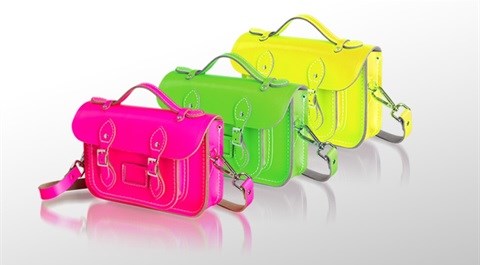Global strategic marketing consultancy Added Value has found that brands that tap into cultural relevance and prove themselves to be authentic, honest, all natural, with a good story to tell, have brought back a traditional craft or skill and tapped into our 'maker economy', do resonate with consumers, especially Gen Y and the Millennials.
Often it is the newer start-up brands that can do this - unfettered by a legacy, the so-called clean-slate brands. But there is no reason that traditional brands with a long history can't launch new product lines or divisions that do the same, or bring back traditional tastes or styles. Many brands are doing that - with original limited edition tins, bottles, recipes.
I think it is more to do with the sincerity and passion of the founders that is still inherent in a young business. Big brands tell us that they abide by the old traditions of the founders, but that is hard to believe when the marketing departments number hundreds of people around the world. It is easier to do that if the original mom and pop still run the store, not some made up 'uncle' running the business or fake founder story from the 1940s.
Real authenticity is... er... actually real, not some advertising tale dreamt up to tick off 'authenticity' on the checklist. And it helps if there is a dog.
The following four brands are among the fastest growing in the UK and Added Value has unpacked what they have done right and what makes them special:
The satchels are handmade, the design is classic and they are associated with the rich tradition of the University town of Cambridge in the UK. The story of this start up is honest and true - a mother and daughter team (and Rupert the dog) who remain astonished at their success which sees turnover of 10 million pounds a year. The stunning satchels are now made in every colour and size from punk to classic, two-tone, handbags to backpacks.
The media, celebrities and fashion designers love them. Added Value says the handmade proudly-British satchels "resonate with the trend of people valuing products which are made in an authentic, honest way". They say consumers increasingly respect and value entrepreneurs who revive traditional production methods of the past and have an authentic story to tell.
Two bored twenty-something beer drinkers and their dog decided to brew their own craft beer. As you do. In year two they became Scotland's largest independent brewery and achieved notoriety for producing the UK's strongest beer, Tokyo. They started exporting to Europe and Asia and allowed fans to buy shares online in their Punk brand, a practice they have continued to raise funds for expansion, such as into their BrewDog pub empire and BrewDog TV show in the United States.
It is a phenomenal success story that has one wishing you'd thought of it! As Added Value comments: "This brand captures the spirit of autonomy and authenticity valued by Gen Y. They've tapped into the craft beer craze, fuelled by people's growing hunger to know more about how the things they buy are made."
They also used their own personalities to create a distinctive rebellious personality for their brands.
Drake and Morgan are a collection of bars and restaurants in London, with an emphasis on beautiful décor and food presentation, locally sourced ingredients, and interesting names, like The Fable, The Happenstance, The Anthologist and other literary references.
Added Value points some of their success to the fact that they have dedicated areas where customers are invited to learn how to become expert mixologists, for example: "We've noticed a trend, especially amongst Gen Y, where the acquisition of knowledge has become a new currency and a form of self-expression. These consumers are shunning the traditional all-knowing 'expert' and are learning for themselves."
Fever Tree has successfully 'premiumised' the common mixer, says Added Value. Again, the founders are profiled with 'our story'. They tell you why they're different; they hark back to natural ingredients, to the "source" of things.
As Added Value says: "They've tapped into a growing consumer desire for products that openly celebrate the provenance of ingredients, having discovered a natural alternative to quinine in the Congo. Fever Tree has also created a holistic brand experience, with unique pop-up gin and tonic bars at gardens in London - a brilliant platform to showcase the aromas and tastes of its distinctive botanical ingredients."



































